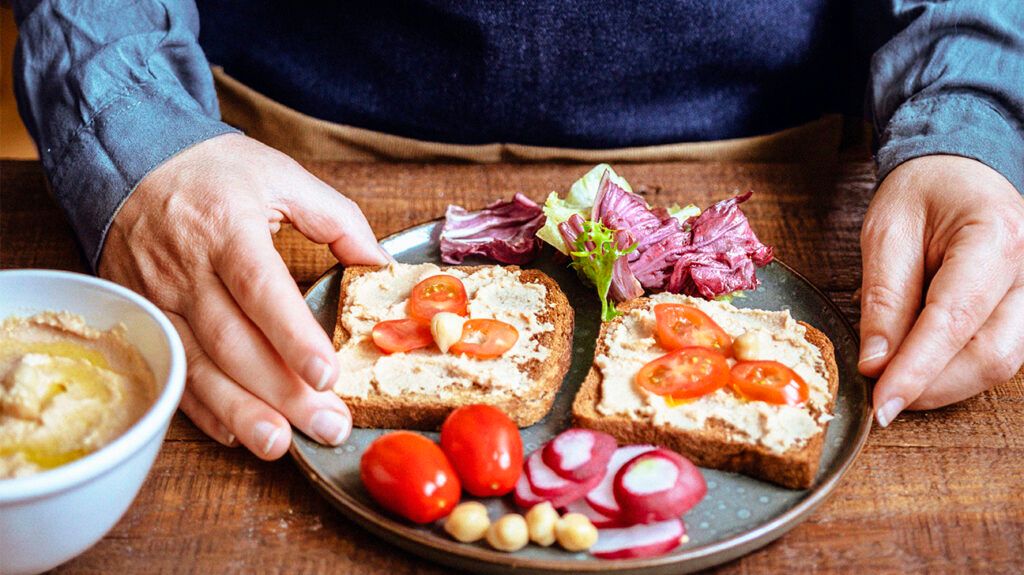While there is no specific diet for people with liver cancer, healthcare professionals may recommend various foods that can promote healing.
The hepatitis B and hepatitis C viruses are the most common causes of liver cancer. However, genetics, exposure to carcinogenic substances, and various lifestyle factors can also play a role in the development of liver cancer.
Diet, like other lifestyle factors, can affect a person’s mortality rate from liver cancer. It can also potentially affect someone’s risk of developing this cancer.
Eating a nutritious and balanced diet that is rich in certain foods may help reduce a person’s risk of liver cancer.
This article discusses some foods that may help reduce the risk of liver cancer and reduce mortality for those who have this cancer. It also explains which foods may be better to consume during treatment.

Hepatocellular carcinoma (HCC) is the
Because cirrhosis negatively affects appetite and nutrient absorption and increases metabolic needs, people with HCC
A healthcare professional may outline nutritional plans for a person based on their specific needs. This comprehensive nutritional assessment may involve an extensive physical examination, an analysis of medical history, and laboratory data, as well as other factors relating to the cancer.
While health professionals will generally provide specific nutrition guidelines based on the needs of the individual, some foods have an association with potential benefits for managing and reducing the risk of liver cancer. Conversely, some foods can worsen symptoms and possibly increase liver cancer risk.
Learn more about liver cancer.
Foods to include
Healthcare professionals may recommend that people with liver cancer include certain foods in their eating plan.
Whole grains
Research suggests that consumption of whole grains has an inverse relationship with liver cancer. In a
Legumes
Legumes such as beans, lentils, and chickpeas are another great source of fiber. They may potentially protect against liver cancer and may have an inverse relationship with the condition. Research suggests that people may benefit from consuming
Fruits and vegetables
Fruits and vegetables are rich in vitamins, minerals, fiber, and antioxidants, and regularly consuming them may help prevent various types of cancer.
A
Some
Fish
One
Lean fish, fatty fish, crustaceans, and mollusks may also have independent associations with lower HCC risk, according to
Read about cancer-fighting foods.
Foods to avoid
People may wish to limit or avoid certain types of foods that might potentially increase cancer risk.
Aflatoxins
Aflatoxins have a potential association with an increased risk of liver cancer. They
- corn
- rice
- peanuts
- sesame seeds
- sunflower seeds
- wheat
- some dried foods and spices
Aflatoxins are the result of fungal infection or crop contamination before and after harvest. They can also transmit to livestock through feed, resulting in the contamination of meat and other animal products, such as eggs and dairy.
Myotoxins affect
Red meat
High red meat intake may also increase the risk of mortality for those already living with liver cancer, according to a
Processed meat
Processed meat is a
It is high in iron and saturated fat, which have links with cancer development. Processed meat also has links with the development of high risk factors for cancer, such as diabetes and obesity. Insulin resistance, which has an association with processed meat consumption, also has a
People who are receiving treatment for liver cancer
During chemo
During chemotherapy treatment, it is essential for people to eat enough protein and calories. People undergoing chemo
This means it can be important for a person to try new foods and supplement their diet with high protein, high calorie snacks such as:
- chicken or fish salad and crackers
- Greek yogurt
- nuts and seeds
- eggs
Read more about diet and chemotherapy.
After surgery
It is also important to eat well-balanced and healthy meals after surgery. The following foods
- lettuce
- sweet potatoes
- cruciferous vegetables, such as:
- broccoli
- cabbage
- cauliflower
- legumes
- carrots
During periods of recovery, healthcare professionals
Several common diets claim to treat or even “cure” cancer. However, there is no scientific evidence to support this, and no diet can replace professional medical treatment.
These diets include:
Cancer resources
To discover more evidence-based information and resources for cancer, visit our dedicated hub.
A person’s risk of developing liver cancer might decrease if they include cruciferous vegetables, legumes, whole grains, and fish in their diet and limit their consumption of red and processed meats.
For people who have liver cancer or are recovering from it, these same dietary elements may help manage symptoms during treatment or reduce mortality risk. However, situations vary from person to person, and a person should always seek individual advice from a medical professional.
